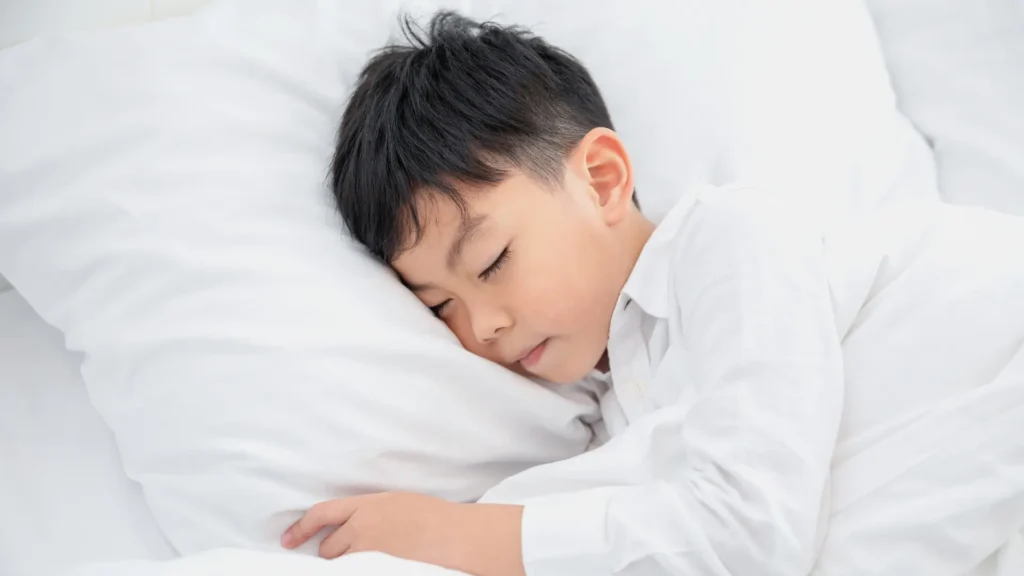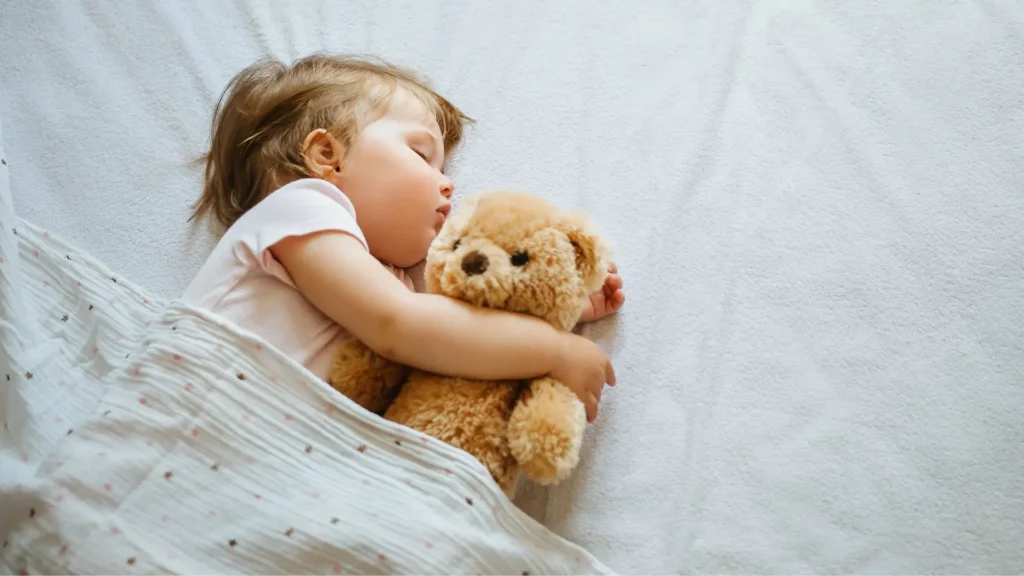Sleep is incredibly important for children. It plays a crucial role in their overall well-being, both mentally and physically. While we often think of sleep as a time for rest, it’s much more than that for kids. Today, we will discuss the importance of sleep for kids.
Research has shown that sleep is essential for cognitive development in children. It affects their ability to learn, think, and process information effectively. That’s why ensuring your child gets enough sleep is vital for their growth and development.
To help parents understand how much sleep their children need at different ages, experts have provided guidelines on recommended sleep durations. These recommendations are designed to support optimal functioning during the day, both at school and in other activities.
The Importance of Sleep for Kids Development
Sleep is incredibly important for children’s development. It has a major impact on their brain development and ability to learn. Here are some key ways that sleep benefits children:
1. Physical Growth and Maturation
During sleep, especially the deep stages, the body releases growth hormones that are necessary for physical growth and maturation. This is why children need more sleep than adults – it supports their growing bodies.
2. Memory Consolidation and Learning
From a cognitive perspective, sleep plays a crucial role in memory consolidation and learning. It helps to convert short-term memories into long-term ones, which leads to better learning outcomes. Research has shown that:
- Children who get enough sleep perform better on memory-related tasks compared to those who don’t.
- Lack of sleep can negatively affect attention, concentration, and problem-solving skills.
3. Emotional Regulation
Sleep also plays a role in emotional regulation. When children don’t get enough sleep, they may experience:
- Increased irritability
- Mood swings
- Difficulty managing stress
On the other hand, when children get adequate sleep, it can:
- Improve their mood
- Help them handle stress better
4. Behavioral Functioning
Having consistent sleep schedules is important for children’s behavioral functioning. Research has found that children with irregular sleep patterns are more likely to have behavioral problems compared to those with consistent bedtimes.
5. Potential Consequences of Sleep Deprivation
Not getting enough quality sleep can have negative effects on children’s neurological development:
- Impaired cognitive function: Lack of sleep can lead to difficulties with attention, memory, and problem-solving.
- Delayed growth: Growth hormones are primarily released during sleep, so insufficient sleep can interfere with a child’s physical growth.
Given these potential consequences, it’s essential for parents to prioritize their children’s sleep and establish healthy bedtime routines.
Understanding Recommended Sleep Duration for Kids
Proper sleep is vital for children’s growth and well-being. The American Academy of Pediatrics outlines sleep duration guidelines tailored to different age groups:
- Infants (4-12 months): 12-16 hours per 24 hours (including naps)
- Toddlers (1-2 years): 11-14 hours per 24 hours (including naps)
- Preschoolers (3-5 years): 10-13 hours per 24 hours (including naps)
- School-age children (6-12 years): 9-12 hours per 24 hours
- Teenagers (13-18 years): 8-10 hours per 24 hours
These recommendations consider the critical role circadian rhythms play in regulating sleep-wake cycles. Circadian rhythms are internal processes that follow a roughly 24-hour cycle, responding primarily to light and darkness in an organism’s environment. They help determine children’s sleep patterns and have a profound impact on their alertness and readiness to learn.
Adolescents often experience a shift in their circadian rhythms, leading to later sleep and wake times. This can result in adolescent sleep problems, especially with early school start times clashing with their natural sleep patterns. Understanding these biological changes is crucial to supporting healthy sleep habits as children grow.
Promoting Healthy Sleep Habits through Bedtime Routine
The key to getting good sleep is having a consistent bedtime routine. This routine helps children’s internal clocks work better, which leads to better sleep. Here are some things that can be part of a bedtime routine:
- Regular naptime: Having a set time for naps can help regulate sleep patterns.
- Quiet activity before sleep: Doing something calming, like reading a book or taking a warm bath, can signal to the body that it’s time to wind down.
- No screens an hour before bed: The blue light from screens can interfere with the body’s natural sleep signals, so it’s best to avoid them before bedtime.
Creating a sleep-friendly environment is also important for good sleep hygiene. Here are some ways to do that:
- Keep the bedroom dark, quiet, and cool: These conditions can help create an atmosphere that’s conducive to sleep.
- Make sure the bed and pillows are comfortable: Having a cozy sleeping surface can make it easier to fall asleep and stay asleep.
- Minimize noise and distractions: Using earplugs or white noise machines can help block out any sounds that might disturb sleep.
By making these habits part of their daily routine, parents can help their children develop healthier sleep habits.
Addressing Common Sleep Disorders in Children
Sleep disorders in children can significantly impact their health and daily functioning. Recognizing these conditions early helps in managing them effectively.
Night Terrors
Symptoms:
- Sudden arousal from sleep with a piercing scream or cry, intense fear, rapid heart rate, sweating, confusion upon waking, usually no recollection of the event.
Impact: Can disrupt family sleep patterns; may cause daytime fatigue.
Restless Leg Syndrome (RLS)
Symptoms:
- Uncomfortable sensations in the legs with an irresistible urge to move them, often worsens at night.
Impact: Leads to difficulty falling asleep and staying asleep; affects daytime activities due to lack of rest.
Sleep Apnea
Symptoms:
- Pauses in breathing during sleep, snoring, gasping for air, restless sleep, and daytime sleepiness.
Impact: May contribute to behavior problems, learning difficulties, and cardiovascular issues.
Parents should watch for these signs and consult healthcare providers for appropriate interventions. Addressing these disorders improves not only the child’s sleep but also their overall development and quality of life.
Conclusion

To recap, the importance of sleep for kids cannot be understated. It is important as it plays a crucial role in their overall health and well-being. Getting enough rest not only helps with their cognitive abilities but also protects them from potential problems that can arise from lack of sleep, such as difficulties in learning and behavior issues.
For parents and caregivers who are looking for more information on how to establish healthy sleep routines for their children, the American Academy of Pediatrics and the National Library of Medicine are excellent sources that provide comprehensive guides and research findings on pediatric sleep needs and disorders.
By promoting good sleep habits, we are actively contributing to the positive development of our children, giving them a strong foundation for a healthy life ahead.
Further Reading: How to Identify and Treat Common Sleep Disorders



